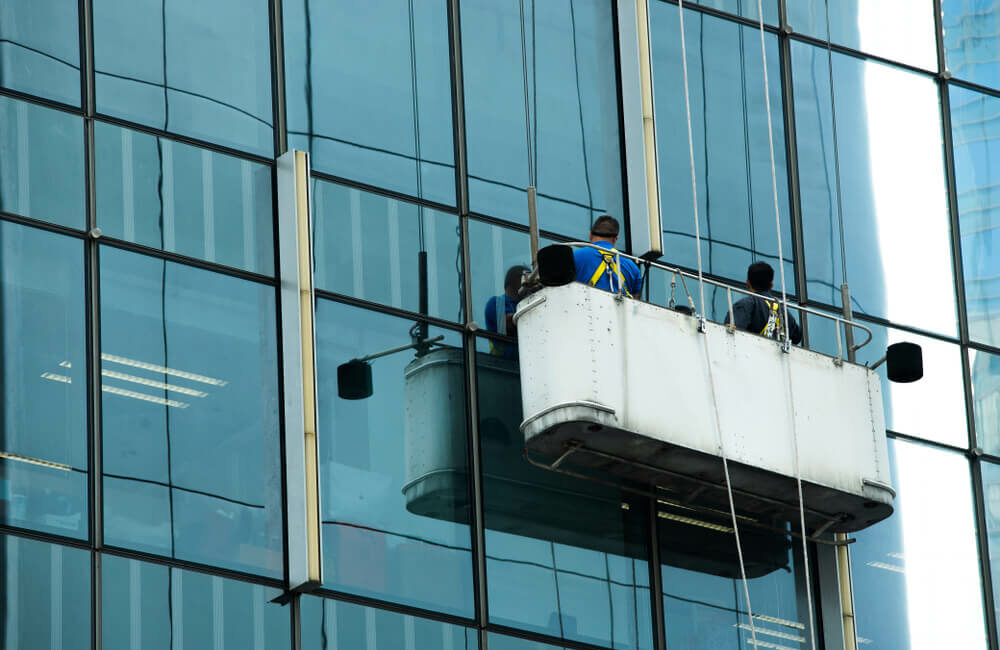Who wouldn’t want their home and office and even the building to look glistening, tidy and attractive to visitors? Rust and dirt stuck up on the threshold, faded color door knobs, moldy window sills etc. would be a turn-off for anyone and that is why cladding is applied to these mostly used and seen parts of any building. But for it to protect the minute parts of the building and bricky structures, it should also be cleaned enough.
Why cladding clean-up is necessary?
The reasons why it is imperative to give a cleanse to your cladding are:
- Visitors whether they are guests, customers, friends, or family will love your place and feel comfortable, especially those who are fonder of cleanliness.
- Dusty winds, rain, water leakage, humidity etc. will not take adverse effect on the claddings.
- The life span will increase and will save your cost of replacing the old with new ones.
- If you want to sell your place, it will be easy as the clients will appreciate how
Better clean than replace
The outside area which is prone to more pollution, water leakages, mud spills, slimy stains of oil, especially on the door knobs, have claddings which are inclined towards the fungus, mold and growth of microbes and being rusted or corroded away and cleaning daily will be cost efficient and will save you from replacing them again and again.
Easy renting or mortgaging
Clean and spotless buildings are valued by the realtors and are placed on the top of to be sold lists. The more glistening and brighter it looks, the more people will be drawn towards it asking for the deals and offering the best rates.
How the guarantee and warranty work?
If you buy or rent a place and the owner tells you that the claddings will not need to be replaces, he is actually thinking that it is understood you will clean them. Otherwise, not having a healthy cleaning routine will be a cut to your security and you will not be able to claim it.
Do claddings have categories?
Yes, the different materials being put in to form the cladding product categorizes it into different kinds and every type will require a variant cleaning. Polyvinyl chloride, brass, copper, zinc, metal even tin have different cleaning requirements which I’m going to explain here:
Metal cored cladding:
These tips and steps will help you achieve cleaner results without damage risks:
- Take a toothbrush, a soft one and rub it on them with alkaline water. It will not totally clean everything but for a starter it will soften the stuck particles which are too hard to be removed with a dusting cloth.
- Dip the brush into that alkaline water every 2 to 3 times of rubbing to clean it and add more solution in it. I recommend alkali solution in water to lessen the effect so it does not damage the metal.
Polyvinylchloride:
- The same solution used for the metal one will be effective on the PVC one too. The difference is that, you will need lukewarm water instead of cold and use a fiber cloth or duster sponge instead of a toothbrush.
- Scrub it softly and then clean it up with a dry piece of cloth. You can find solutions specially made for PVC material in the market easily. Using them will not cause any damage.
- Buffing will clean out any residue of the solution left and the cladding will look good as new.
- These same steps and solutions can be used for uPVC ones and the solution prices will not differ much also. They are quite the same when it comes to cleaning. However, for this you will need thicker coatings of the solution for best and desirable results.
Zinc, brass and copper made claddings:
If you are a vintage fan, you will definitely have these in your home. These vintage products are delicate and too much scrubbing or rubbing can make them lose their color and shine. For these:
- Take a toothbrush and do not dip it in any liquid or even water. Just clean the surface with a soft hand.
- After that, take a soaked piece of cloth, remember that it should not be too much wet. You can also take wet wipes and rub them gently on the brass or zinc surface. But you need to dry it up to prevent any rustic activity.
Try not to forget these tips:
Professionals such as “cladding cleaning” are there to help you with any confusions. So, if you are unable to access the required cleaning material or are not sure about the material of your claddings. Call them for assistance.
Try to use neutral water rather than with a bit higher pH. Also, never forget the inner side of the windows and thresholds.

